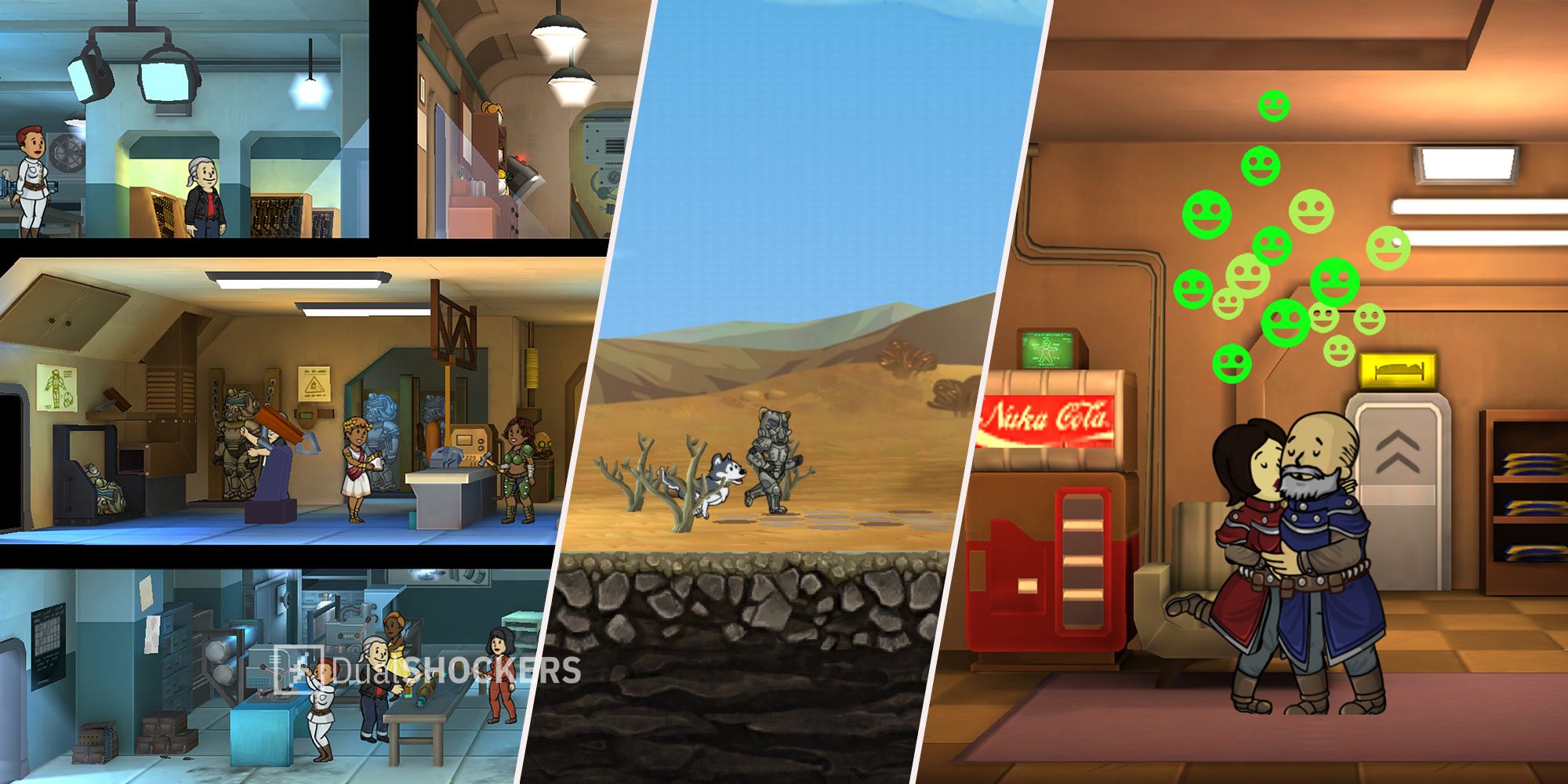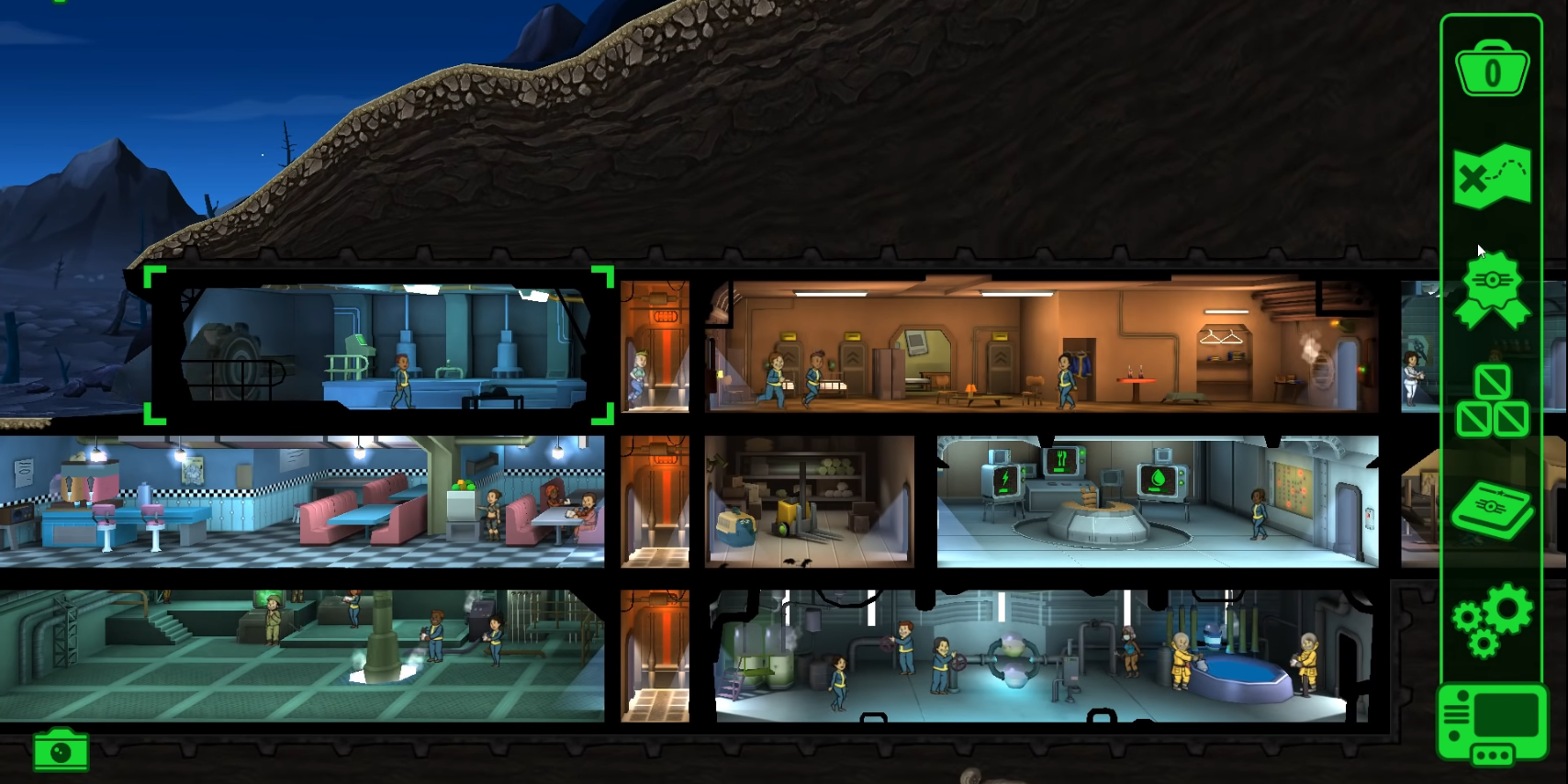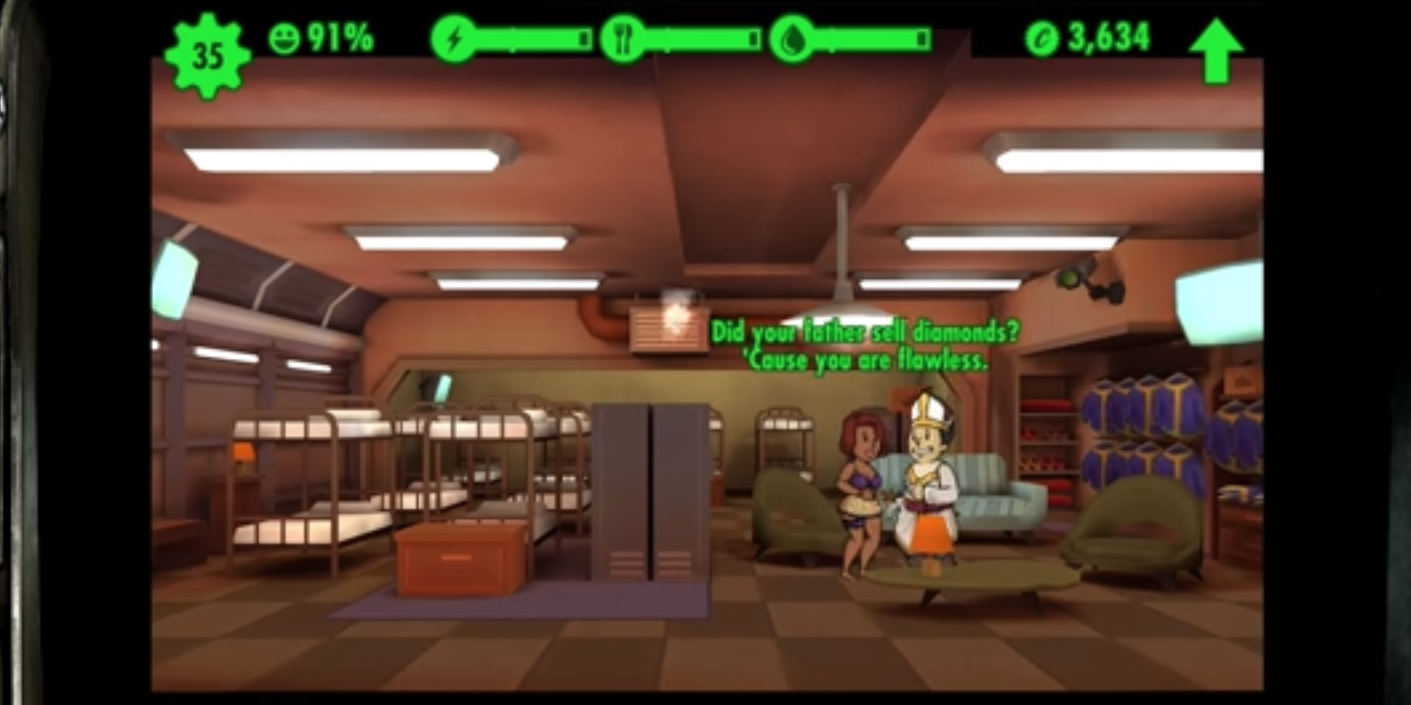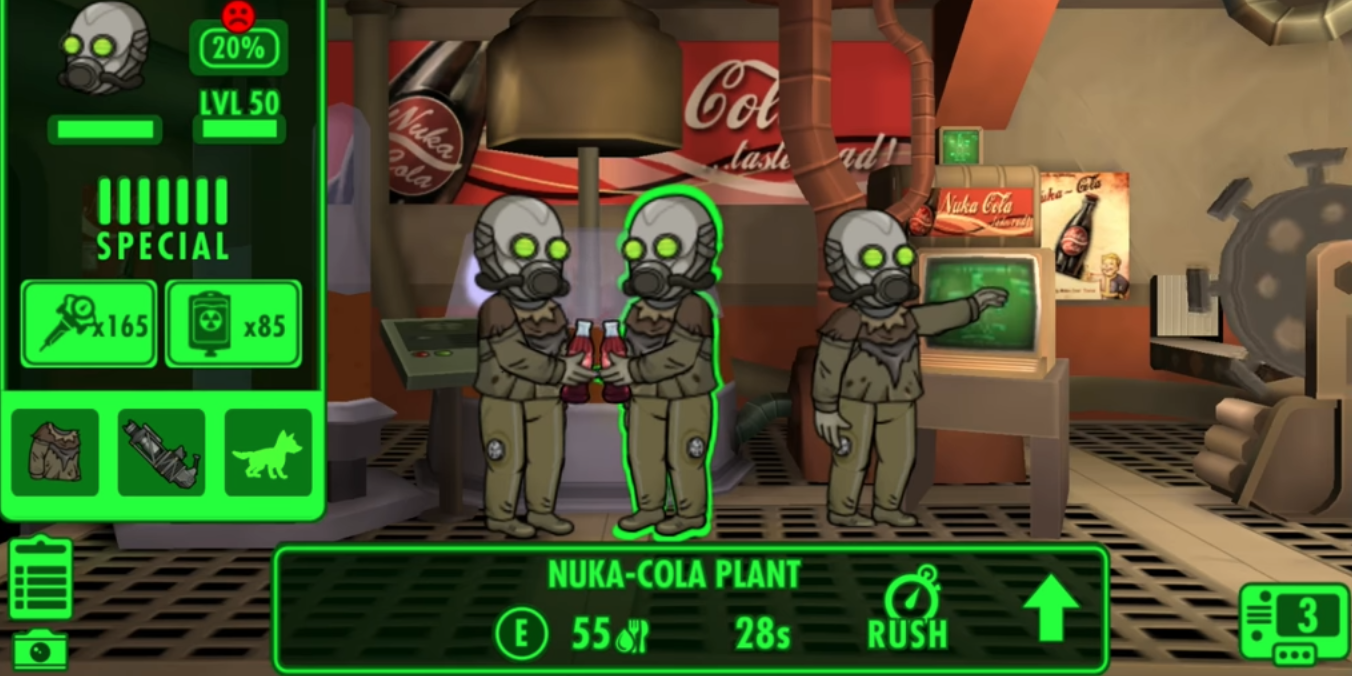Has infinity got you feeling down? From the Penrose Stairs to the π symbol itself, some things just have no end in sight, which can ultimately lead to apathy, or even full-out rage. Human brains aren’t designed to naturally think too far outside a book-ended reality of beginnings and endings. Case in point: the spinoff stepchild of the beloved Fallout series, Fallout Shelter.
Bethesda’s award-winning construction and building sim has seemingly generated mixed feelings among its players: they love it for the fun detailed aesthetic and its casual gameplay, and yet, after putting in a fair amount of hours, it can get kind of draining. Some time after Fallout Shelter's acclaimed release, posts on Reddit, Gamestop and (surprisingly) divorce sites began to echo a similar sentiment. But how could these feelings exist towards a prized iteration of the best-selling Fallout series? Is it the game’s fault, or something else entirely?
For diehard fans of Fallout 1, 2 3, New Vegas and Fallout 4, the initial experience of Fallout Shelter may have ranged from either pleasantly novel to extremely surreal/unsatisfactory. It was an undeniably lighter endeavor than the series' other offerings. Dweller avatars, while culled from the Fallout universe, were modeled after the indefatigably upbeat Pip Boy character, complete with big ironic smiles and trite, often non-sequitur, comments. Dwellers with high charisma looking to uh...procreate were given the best lines, like "Did your father sell diamonds? Cuz you are flawless." Corny gold, but hardly enough to warrant fans' ire.
No, the most egregious offense Fallout Shelter commits is that it has no definitive ending. This may come as a shock when compared to the supposed 200 individual endings squeezed out of Fallout 3. However, for well-rounded players versed in a variety of gaming styles, open-ended scenarios should be absolutely nothing to fret about. In fact, there’s much to embrace. But first, a rebuttal to comments like "Don't waste your time unless you literally have nothing else to do except play this game."
It’s true that Fallout Shelter has no definitive endgame. I mean, unless you count sustaining human life indefinitely. Upon reaching certain milestones in the game, like acquiring 200 Dwellers in your Vault, you hit a ceiling of sorts. Each Dweller’s stats are maxed out, they’re all packing serious heat, they’ve got furry companions and all systems are go. However, as any old simulator ranch-hand knows, this is what you’ve been working for all this time. The fruits of your labor. You can now afford to sit back and let your well-oiled machine do its job. After all, isn’t that the whole point of this genre?
Building sims by their very nature are indefinite experiences which give the game plenty of room to breathe and the player to omnipotently create, but not without disasters and specific setbacks.
Moreover, the appeal hinges on escaping into a curated world catering to our very whims and timetable. Take Minecraft: yes, it has an “ending”, but that's not really the goal in a game made to build and mod ad infinitum. Animal Crossing: New Horizons was a savior during the coronavirus pandemic to millions of users who prayed it would never end. I plan on farming my crops in Stardew Valley (a personal favorite) until I’m old enough to retire.
We also can't ignore the legacy of the eponymous SimCity and its sexy spin-off The Sims, whose underlying creed most closely aligns to that of Fallout Shelter: there is no game over. But you rarely hear people complain about them.
It’s becoming a prerequisite for many time-strapped gamers to be aware of just how much temporal investment they're expected to put into a given game. It makes sense, but it could prove a slippery slope. Once you discover that there really is no final payout to dedicating hours of your life into a random game, you may opt to leave it by the wayside as opposed to taking a blind chance on a potentially awesome experience. According to HowLongtoBeat, Fallout Shelter will take the average user 87 hours to achieve 100% completion. Cool. Then what? Just quit all that hard work? Maybe you’ve given up, but Fallout Shelter hasn’t given up on you.
Almost prophetically sensing the discontent among their fans in 2015, Bethesda provided immediate answers and solutions to that age-old rhetorical question: “Where do I go once I’ve reached the top?” Forward, that’s where. Handfuls of updates have given players more game-enhancing options like the challenging Survival mode, where permadeath prohibits you from reviving a Dweller when they die in the Vault or out in the Wasteland (c’mon, you wanted a challenge!).
Other updates have bestowed users with new unlocked characters from Fallout 4, the option to craft new Deathclaw-destroying weapons and new unlocked Vault rooms. Moreover, with Fallout’s 25th anniversary, Bethesda has assured the public that a quest line and other goodies are coming down the pipeline. If these updates continue, this could be the shot in the arm Fallout Shelter needs to show how fun eternity can really be.
The premise of the Fallout franchise suggests a world destroyed by nuclear war, which also necessitates shelters filled with Earth’s last chance at rebuilding and repopulating. Fallout Shelter’s gameplay was a stroke of genius, but the plot was also logical. If you want to make this broken world a better place, you, as an Overseer, have your work cut out for you, and there really is no end in sight.
It's only natural to hope for more than living out your hectic days in an underground bunker, but as a free-to-play sim in a nuclear wasteland, that may be a tall order. To embrace this mentality is the first step to quelling your inner anger and accepting your collective fate. Fallout Shelter is a patient long-term gig that requires daily care, but hey, if you’re not up to the task, there’s always Fallout 76.




